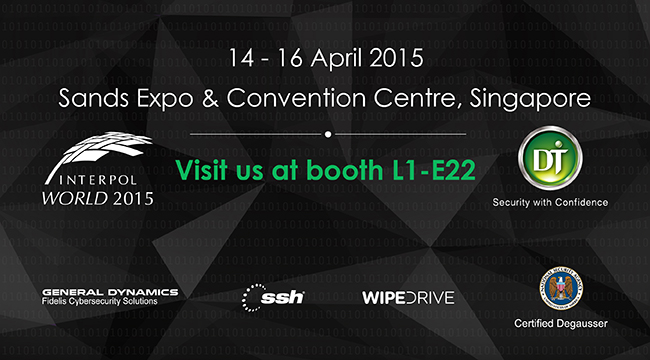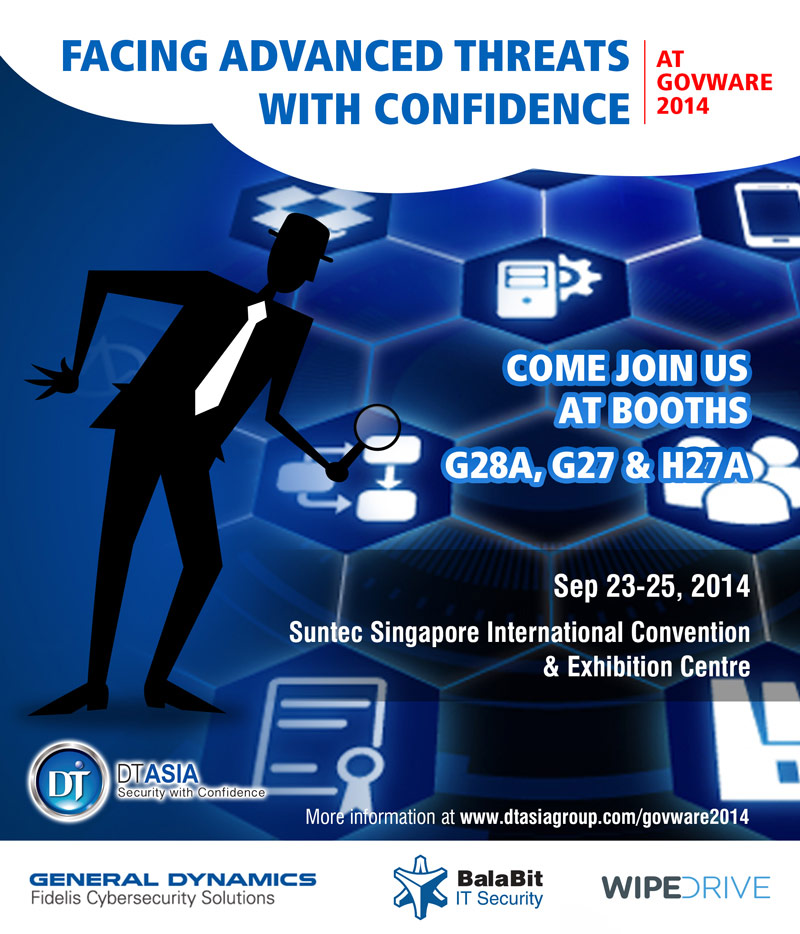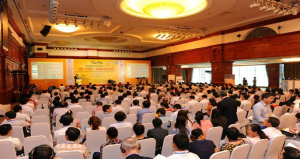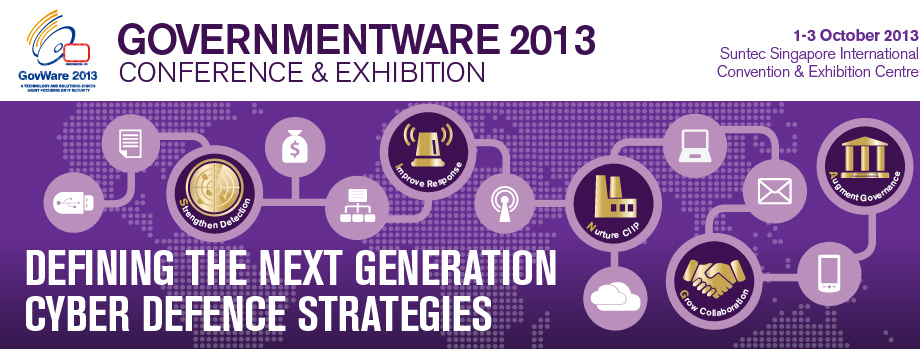Data Terminator Pte. Ltd. Data Protection Policy
This Data Protection Policy (“Policy”) sets out the basis which Data Terminator Pte. Ltd. (“DT”, “Company” or “we”) a company registered in Singapore (UEN Number 200705336M) Data Protection Policy (“Policy”) may collect, use, disclose or otherwise process personal data of persons in accordance with the Singapore Personal Protection Act (2012) (“PDPA”). The Policy may be updated from time to time without further notice. DT considers the privacy of individuals a priority and we strive to protect personal data in our possession or under our control against unauthorized disclosure or use. Please see below for our Data Protection Policy.
1. Introduction
1.1. This Policy sets out our privacy policy and the practices that will be followed with respect to the collection, use, disclosure and/or otherwise processing of personal data. This statement is provided in accordance with the PDPA.
2.1. You are deemed to have given your consent for the collection, usage and disclosure of your personal data in the following circumstances:
2.1.1 when you voluntarily provide your personal data to us at our premise or in connection with any business with our Company or visit our website;
2.1.2 it is reasonable for you to have provided the personal data to us in the circumstance which you have provided; and
2.1.3 in any other circumstances where consent is deemed under the PDPA.
3. Definition of Personal Data
3.1. As used in this Policy:
3.1.1 “person” means an individual who has (a) has contacted us through any means to find out more about any goods or services we provide, (b)
submitted a job or internship application with us, or (c) contacted us through any means for any other purposes; and
3.1.2 “personal data” means data, whether true or not, about an individual who can be identified: (a) from that data, or (b) from that data and other information to which we have or is likely to have access; but excludes (c) business contact information.
3.2. This may include the following which is not exhaustive:
3.2.1 Your name, NRIC, passport, employment pass numbers or any other identification numbers;
3.2.2 Telephone number(s), physical mailing address, email address, payment information including the name of cardholder, card number, billing address and expiry data; and
3.2.3 Biometric data (facial image)
3.2.4 Video recording, photograph/video image and
3.2.5 Any network data and any other information relating to any individual which you have provided to us in any form during dealing with the Company.
3.3. Other terms used in this Policy shall have the meanings given to them in the PDPA (where the context so permits).
4. Collection, Use and Disclosure of Personal Data
4.1. DT generally collects personal data from our customers, contractors, employees and other individuals such as job applicants. We would only collect personal data that has been provided to us voluntarily by you or via a third party who has been duly authorised by you to disclose your personal data to us (your “authorised representative”).
4.2. These personal data may be furnished to us in forms filled by you, face to face meetings, emails or telephone conversations. We may also keep a record of any contact you have with us. These data would be collected only for business purpose or for the purpose(s) stated by us when we gather the personal data from you.
4.3. You have choices regarding our collection, use or disclosure of your personal data. If you choose not to provide us with the personal data
described in this notice, we may not be in a position to process your required services. You have the right to object to the processing of your
personal data and withdraw your consent in the manner described in section
7 below.
4.4. We may collect, disclose or use your personal data pursuant to an exception under the Personal Data Protection Act or other written law such as during the following situations:
a. To respond to an emergency that threatens your life, health and safety or of another individual; and
b. Necessary in the national interest, for any investigation or proceedings
4.5. The personal data collected may be used for any or all of the following purposes:
4.5.1 to provide Goods and Services, process payments, make deliveries, communicate with you about our product and services;
4.5.2 as part of our business operations;
4.5.3 for billing and reporting, such as for invoicing and account management purposes;
4.5.4 for internship / employment application and recruitment purposes;
4.5.5 for follow-up action regarding any complaint, feedback, query or request received;
4.5.6 to improve our services in any form, detect fraud or abuse and enable third parties to carry out technical, logistical or other functions on behalf of the Company; and
4.5.7 to assist in law enforcement and investigations conducted by any governmental and/or regulatory authority.
4.6. DT does not sell for a profit, rent or provide your personal data to any third party not in connection with your business dealing/s with us and in compliance with this PDPA.
4.7. DT may disclose your personal data:
4.7.1 with your consent, where such disclosure is required for performing obligations in the course of or in connection with our provision of the goods or services requested by you;
4.7.2 to comply with any applicable laws, regulations, codes of practice, guidelines or rules; or
4.7.3 to third party service providers, agents and other organisations we have engaged to perform any of the functions listed in Paragraph 4.5 above for us. Any third party engaged by us will be contractually bound to keep all personal data confidential.
4.8. The purposes listed in Paragraph 4.5 may continue to apply even in situations where your relationship with us (for example, pursuant to a contract) has been terminated or altered in any way, for a reasonable period thereafter (including, where applicable, a period necessary for our business or legal purposes).
5.Transfer of Personal Data Outside Singapore
5.1. Unless for business-related needs, DT generally does not transfer your personal data outside of Singapore. However, if we do so, we will ensure that the recipients provide a standard of protection to your personal data that is comparable to that provided under the PDPA.
6. Security of Personal Data
6.1. DT implements appropriate reasonable administrative, physical and technical measures to safeguard your personal data within our control or possession against loss and any unauthorised misuse, access, disclosure, alteration, and similar risks.
6.2. While no method of protection is completely secure and security cannot be guaranteed, we will do our best to maintain the security of personal data in our possession and/or under our control.
7. Withdrawal of Consent
7.1. The consent that you provide for the collection, use and disclosure of your personal data will remain valid until such time it is withdrawn by you in writing. You may withdraw your consent and request us to stop using and/or disclosing your personal data for any or all of the purposes listed above by submitting your request to our Data Protection Officer (“DPO”) at the contact details below.
7.2. Depending on the complexity of the request and its impact to our relationship with you, DT will cease (and instruct any of our data
intermediaries and agents to cease) collecting, using or disclosing the personal data within a reasonable timeframe of receiving your request in writing, unless required or authorised under applicable laws.
7.3. If consent is withdrawn, you acknowledge and agree that the Company at its discretion may not able to serve you in connection with the provision of our goods or service and you will still be bound by your contract(s)for the goods or service with the Company entered before the withdrawal.
8. Access to and Correction of Personal Data
8.1. Subject to Paragraph 8.3 below, within a reasonable timeframe of receiving your request in writing, we will provide you with access to your personal data that is in our possession or control and/or information about the ways in which your personal data has been or may have been used or disclosed by us within a year before the date of the request. .
8.2. Subject to Paragraph 8.3 below, within a reasonable timeframe of receiving your request in writing, we will correct an error or omission in your personal data that is in our possession or control and send the corrected personal data to other organisations to which the personal data was disclosed within a year before your request was made.
8.3. If your request relates to personal data which we are processing on behalf of another organisation, we will instead forward your request to the relevant organisation for their necessary action.
8.4. You may submit your request for access to or correction of your personal data to our DPO at the contact details below. Please note that a
reasonable fee may be charged for an access request. If so, we will inform you of the fee before processing your request.
9. Accuracy of Personal Data
9.1. We generally rely on your personal data provided by you (or your authorised representative). In order to ensure that your personal data is current, complete and accurate, please update us if there is any changes to your personal data by informing our DPO at the contact details below.
9.2. You should ensure that all personal data submitted to us is complete and accurate. Failure on your part to do so may result in our inability to provide you with the goods and services you have requested.
10. Retention of Personal Data
10.1. Your personal data will be retain for as long as it is necessary to fulfil the purpose(s) for which it was collected or as required or
permitted by applicable laws, and the Company will cease to retain the personal data when it is no longer necessary for any legal or business
purpose.
11. Law, Jurisdiction and Language
11.1. This Policy and your use of this website shall be governed in all respects by the laws of Singapore and you agree to submit to the exclusive jurisdiction of the courts of Singapore.
12. Contacting Our Data Protection Officer
12.1. You may contact the below if you have any enquiry, feedback or complaint regarding our personal data protection policies and practices, if you wish to make any request or if you believe that information we hold about you is incorrect or outdated:
The Data Protection Officer
Phone: (65) 6463 9212
Email: dpo@data-terminator.com
Letter: 1 Bukit Batok Crescent #09-21 WCEGA Plaza Singapore 658064
The Company will attempt to resolve your query within a reasonable timeframe and will inform you in writing if more time is required to
investigate and respond to you. The Company will not respond to any anonymous query.
13. Changes
13.1. We may revise this Notice at any time without any prior notice. Your continued use of our services and/or products constitutes your
acknowledgement and acceptance of such changes.
Effective: August 23rd, 2021
Last Updated: April 27th, 2023
————————————-
Data Protection Notice for Customers
Data Protection Notice To Employees And Job Applicants
————————————-











